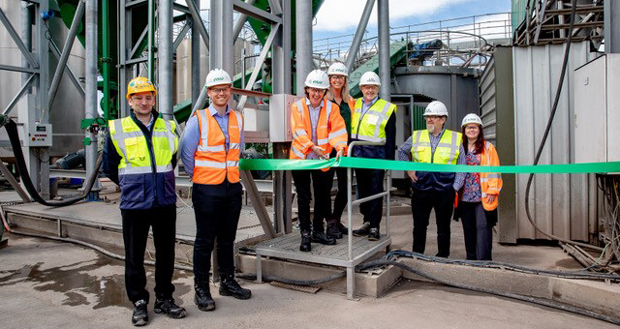Enva, a provider of recycling and specialist resource recovery solutions in the UK and Ireland, has opened a £1.5 million ash recycling plant in Paisley, Scotland.
The new facility will treat up to 20,000 tonnes a year of fly ash from biomass and Energy from Waste (EfW) facilities. The ash, which would previously have been destined for disposal in hazardous landfill sites, is washed to remove contaminants and then combined with other materials to create a sustainable, concrete product.
To deliver its ash recycling solution, Enva has partnered with Anglo Scottish Concrete Holdings (ASCH) – a long-established concrete and aggregate supply company. Both companies share an ambition to be at the forefront of circular economy and are working to replace quarried aggregates with recovered materials.
The new plant was officially opened by Mhairi Black, MP for Paisley and Renfrewshire South. She said: “Enva’s ash recycling plant showcases how Scottish businesses are innovating and driving the development of the circular economy. In addition to the clear environmental benefits, investment in these sustainable technologies creates jobs and helps to support local economies. This is only the start of the journey and I look forward to seeing how this exciting facility develops over the coming months and years.”
Enva’s CEO, Tom Walsh, commented: “The environmental benefits of recycling fly ash are compelling. Every tonne of recycled aggregate produced by this plant reduces demand for quarried materials by the same amount and working with ASCH can offset 200-300kg of virgin material in every tonne of concrete manufactured.
“In addition to the clear benefits of reducing waste to landfill the use of this recycled product enables construction companies to utilise secondary resources with comparable characteristics and qualities to those of virgin materials.
“Providing a solution that manages waste near to its point of production also has clear benefits. Reducing the associated haulage has saved an estimated 950,000kg of CO2.”





